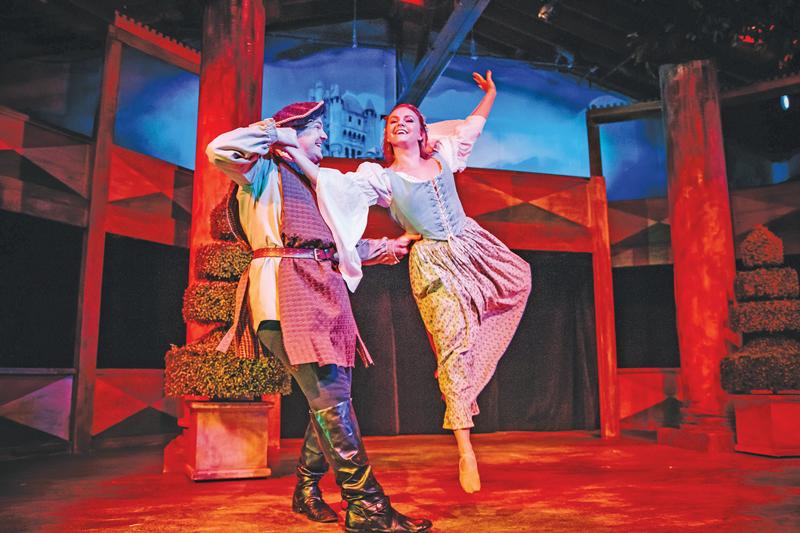Camelot came to Broadway in 1960 and to movie theaters in 1967. Those years dovetailed with the coming of innovators like Stephen Sondheim, and musicals were never the same again. But while song, dance, and concept got increasingly interesting, that 1950s sense of purpose and conversational verve sometimes got sacrificed.
The Encore Musical Theatre Company has brought back Alan Jay Lerner and Frederick Loewe’s Camelot this summer, a witty and weighty message from the tail end of the era of plot-driven musical comedies with straightforward songs. Lerner and Loewe are most remembered for Camelot and My Fair Lady, and unlike the always kid-friendly Rodgers & Hammerstein, L & L tended to salt their love stories with sophisticated adult themes–not risque, just stuff adults care about.
Camelot is based on parts of T.H. White’s The Once and Future King, itself a reworking of the Arthurian legends by Sir Thomas Malory in the fifteenth century. I dipped into both sources (the last very briefly) and can report that of all the iterations, the musical Camelot is the version of the Arthur, Guenevere, and Lancelot story that has some depth. It seems pure genius to me that Lerner and Loewe managed to shape their source �xADmaterial–mostly about magic and dragon-slaying–into not only a plausible and poignant tale of the end of feudalism but made it do double duty as a story about the complications of long-term marriage, as full of brilliance and irony as celebrated dramas like Who’s Afraid of Virginia Woolf? and The Lion in Winter.
The songs don’t seem to have survived well as stand-alone musical creations, but L & L are unequaled in their ability to use songs to establish character. “Lusty Month of May” foreshadows a slippage in Guenevere’s moral compass. The boastful “C’est Moi” introduces Lancelot as an unintentionally comic character. Because I find so much narrative mastery in this show, I like to think that the one ridiculous plot change L & L made from the original material–the script’s tortured insistence that no literal adultery was committed by Lancelot and Guenevere–was imposed by censors, producers, or backers, not authorial prudery.
Encore’s production of Camelot is so ably rendered by Stephen West, playing a majestic Arthur, David Moan and Olivia Hernandez as Lancelot and Guenevere, Tyler Lynch as Mordred, and Jim Walke in an all-too-brief turn as Merlin, that I hate to mention the two bits that detracted. Hernandez has vocal talent to spare and could have siphoned a little of that talent into character development and relied less on heaving bosom and soulful eyes. I know Encore’s budget is not Broadway’s or Stratford’s, but the production was also undercut by sometimes cheesy sets and costumes, particularly that his-and-her outfit the king and queen haul out for special occasions; Encore makes spectacular use of a minimal orchestra, and it wouldn’t hurt to try the same minimalist route on the stagecraft. Still, this is a play worth seeing. If you haven’t seen a 1960-ish musical in awhile, this is one of the best of its breed.
Camelot runs through July 2.
Camelot
Witty and weighty

Credit: Michelle Anliker Photography

